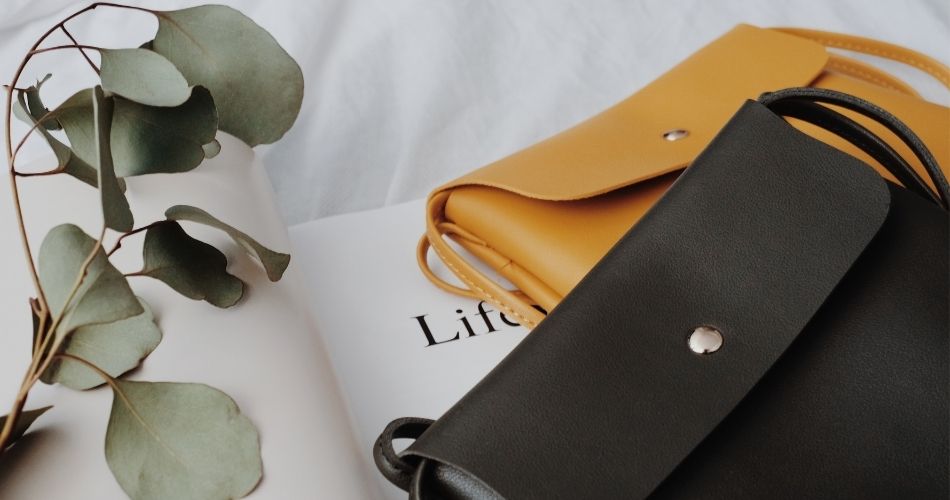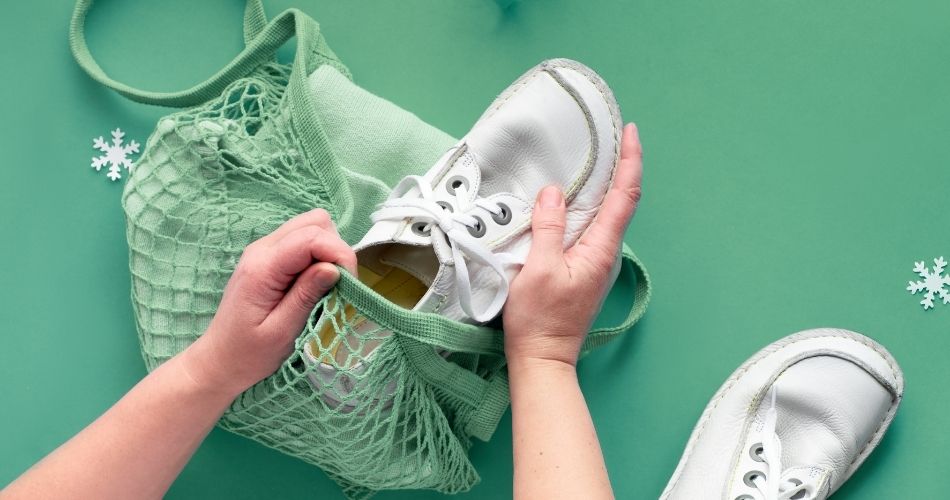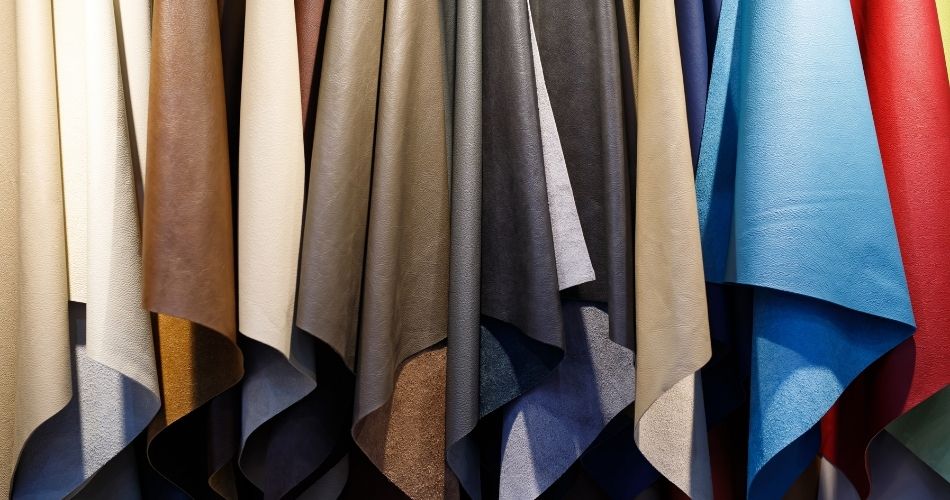Veganism is gaining much ground around the globe as days and days go by. More and more people are embracing a plant-based lifestyle and sustainable living in a bid to keep the environment both human and animal-friendly. Even charity organizations and forums have been formed purposely for sensitization on veganism, for instance, The Vegan Society. The more the reason vegan leather is also getting massively popular in the clothing industry.
Yes, it’s a good move towards achieving environmental sustainability. But is vegan leather really worth the craze? Is it a better alternative for real animal leather? Well, this article, after extensive research, delves into the awesomeness of vegan leathers. Let’s first understand what vegan leathers is in its entirety.
What is Vegan Leather Made of?
You need to know that Vegan leathers is artificial leather that is not real leather. Vegan leathers, also known as faux leather, is natural leather made from either plant-derived matter or recycled plastic. According to PETA, it could be a product of fruit waste like peels, pineapple leaves, cork, and many more.

Being the largest producer of vegan leathers, China boasts first-class industrialization techniques to the extent it supplies vegan leather to the whole world. How vegan leather is made involves many processes, from obtaining the base material, cotton or polyester, to preparing the fabric as the output.
Why You Should Adopt Vegan Leather in Your Lifestyle
Vegan Leather Vs. the Real Leather
In one of the Vevolution events held in London discussing Ethical Fashion, Laura Way as the founder of Votch, adorned the podium with an inspiring speech for her fellow veganpreneurs. At one point, she highlighted the demerits of animal leathers production, which inclined her to use only vegan leathers in her watch-making business.
“I’m sure you are all aware of the process that goes into tanneries as well as the toxic chemicals that are used. And the effects that not only the animals suffer but also the humans. A high percentage of workers in Bangladesh, where the average life expectancy is 50, are developing deformations. And children are being born with congenital disabilities because of this. People are growing crops and bathing in the untreated waters from the actual tanneries themselves.”
Laura Way, founder of Votch

Animal leathers is an ancient clothing material, but there have been ethical concerns about its environmental impact, unlike vegan leathers. Vegan leathers production does not involve the loss of any beings, truth be told. The leather industry claims the lives of over one billion animals every year. And that has led consumers to think leather is a by-product of the meat industry, which is not. What if we support eco-friendly vegan leather, would there be such a high slaughter rate of animals? Definitely, it’s a no-no.
Top Leather Brands Have Gone the Vegan Way
Since the discovery of vegan leather as an ethical cruelty-free clothing material, the global number of consumers of vegan leathers rose and is still rising to bigger figures. And as a result, vegan leathers currently is a valuable asset applicable in mammoth industries ranging from bags, footwear, belt, faux leather jackets, upholstery to leathers suits manufacturing industries.
In fact, Research statistics published by Infinium Global Research show the worth of vegan leather is expected to be at $83.6 million by 2025, which would be tremendous growth for vegan leather industries. In fact, a variety of luxury leather brands in the market today are animal-free.
Among others, vegan brands like MATT & NAT, Beyond Skin, Bhava, Angela Roi, and Ahimsa are stylish replacements for your real leathers shoes and clothing in your wardrobe.

Durability Reasons
Vegan leathers designers initially didn’t factor in durability in the manufacture of vegan leathers products. Conversely, nowadays, products made of vegan leather tend to last longer with high Water-proof and stain resistance abilities. Though we both know nothing lasts forever, even you and vegan leathers is no exception.

That’s why it’s crucial to understand its care practices to lengthen its durability. Most faux leather clothes last for a year or two if carelessly laundered and worn. Here is what you should be aware of:
- Apply a small amount of baby oil or leathers conditioner as a protective layer as soon as you notice your vegan leathers is dry.
- Do not dry vegan leather in the sun at all costs. Sun exposure or excessive heat causes the formation of cracks and, worse, peeling. If possible, just air dry.
- Clean separately from clothes that release dyes as bright vegan leather gets easily discolored.
A More Sustainable Leather Material
The world under the UN SDGs targets to live in a more sustainable decade. The invention of plant-based vegan leather is aiding in the actualization of a pollution-free environment favorable for the survival of human beings and animals.
Animal leather tanneries have caused a toll on the health of people. So the adverse effects should be made a thing of the past by including vegan leathers into our lifestyles. Vegan leather production combines the use of more natural resources in providing less environmentally damaging and more affordable products.

Color Variety and Pleasing Aesthetics
The fact that vegan leather is easily customizable with any color gives the buyer a variation on choice. Dyeing vegan leathers is not as challenging as it would be for real leathers. Vegan leathers gives you the freedom to dress up the color you love for a more attractive look. Do you love mustard and looking for a faux leather bag? Then it won’t be hard to find one.

The Takeaway
Although vegan leather is part of ethical fashion, not all vegan leathers is non-hazardous to the environment. There is synthetic PU and PVC leather materials that are unbiodegradable and unfit for the earth and its creatures as much as they are cruelty-free.
“As consumers, we have so much power to change the world by just being careful in what we buy.”
–Emma Watson, actor and slow fashion advocate, supporter of Good On You
Therefore, it’s wise to espouse plant-related vegan leathers. Be the change we want to see in campaigning towards a clean environment. Remember, we are the sole makers of the world we live in. Now that you know genuine stuff about vegan leathers, why not share with your lovelies on Facebook or Whatsapp? Alternatively, drop your comment below at your convenience.


Amazing
I knew about faux leather but i didn’t knew it is also called as vegan leather.After reading this amazing blog post from now onwards I will only use faux leather.Thank you for such valuable information.
I din’t knew.
Clàp clap 👏
I always wanted to turn vegan but didn’t had enough motivation. Thanks for sharing such motivating content. I will surely adopt vegan leather in my lifestyle.
I am 99% Vegan except the leather in my boots and race suit.😂😂😂
Admin – can we make racesuits with vegan leather alongside protecting us ?
Hi Thestreetracer23, Thanks for reaching us out. You can contact Etsy.com, they have experience in designing cutomised vegan leather outfits. you can check out here some of their products.